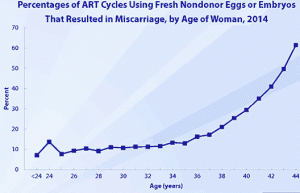

Your risk of miscarriage also rises with each child you bear. In fact, 40-year-olds are about twice as likely to miscarry as 20-year-olds. Age: Older women are more likely to conceive a baby with a chromosomal abnormality and to miscarry as a result.Though any woman can miscarry, some are more likely to miscarry than others. In other cases, the embryo does develop for a little while but has abnormalities that make survival impossible, and development stops before the heart starts beating. In this case, the fertilized embryo implants in the uterus and the placenta and gestational sac begin to develop, but the resulting embryo either stops developing very early or doesn't form at all.īecause the placenta begins to secrete hormones, you'll get a positive pregnancy test and may have early pregnancy symptoms, but an ultrasound will show an empty gestational sac. When the fertilized egg has chromosomal problems, you may end up with what's sometimes called a blighted ovum (now usually referred to in medical circles as an early pregnancy loss or missed abortion). And even when a detailed evaluation is performed – after you've had two or three consecutive miscarriages, for instance – the cause still remains unknown half the time. Since most healthcare practitioners won't do a full-scale workup of a healthy woman after a single miscarriage, it's usually impossible to tell why the pregnancy was lost. This would include an egg that doesn't implant properly in the uterus or an embryo with structural defects that prevent it from developing. Sometimes a miscarriage is caused by problems that occur during the delicate process of early development. Most often, this means that the egg or sperm had the wrong number of chromosomes. Miscarriage usually happens because the fertilized embryo can't develop normally.īetween 50 and 70 percent of first-trimester miscarriages are thought to be random events caused by chromosomal abnormalities in the fertilized embryo. Neither does morning sickness, a fall, or a blow to the stomach. But things like stress, exercising, having sex, and having used birth control pills before getting pregnant don't cause miscarriage.

There are a lot of myths about what causes miscarriage.

It may feel crampy or persistent, mild or sharp, or may feel more like low back pain or pelvic pressure. Abdominal pain usually begins after you first have some bleeding. Keep in mind, though, that up to 1 in 4 pregnant women have some bleeding or spotting (finding spots of blood on your underpants or toilet tissue) in early pregnancy, and most of these pregnancies don't end in miscarriage. Vaginal spotting or bleeding is usually the first sign of miscarriage. If you have these signs of miscarriage, call your doctor or midwife right away so they can determine whether you have a problem that needs to be dealt with immediately: Studies have found that 30 to 50 percent of fertilized eggs are lost before or during the process of implantation – often so early that a woman goes on to get her period at about the expected time or up to a week late. This doesn't include situations in which you lose a fertilized egg before a pregnancy becomes established.


 0 kommentar(er)
0 kommentar(er)
